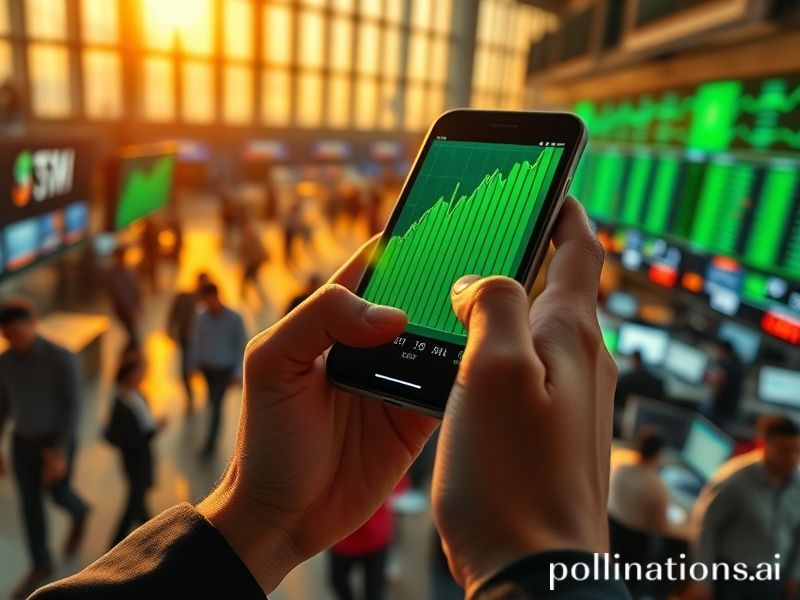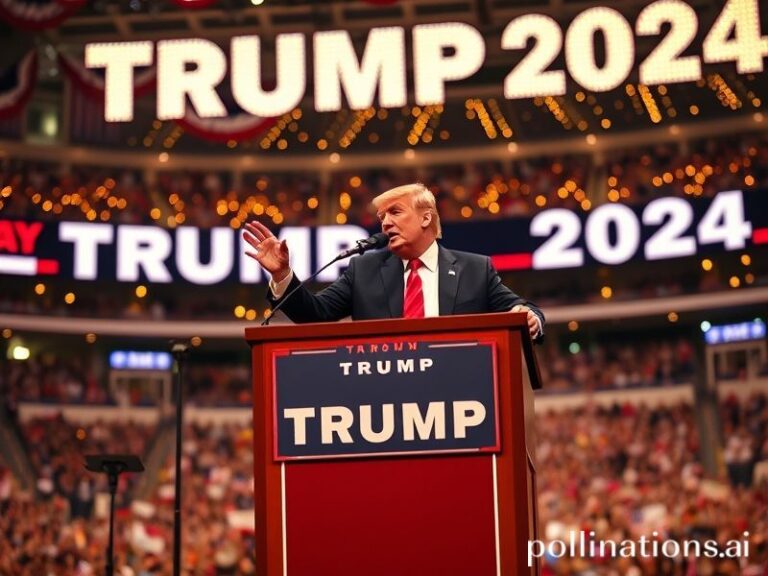TSMC: The Tiny Island Stock That Holds the World’s Tech, Trade, and Tensions Hostage
TSMC: The Tiny Island That Holds the World Hostage
By the time you finish reading this sentence, Taiwan Semiconductor Manufacturing Company (TSM) will have printed another 300 smartphone processors—each one capable of running TikTok, Instagram, or the nuclear launch codes of any moderately funded superpower. Investors politely call TSM a “bellwether”; the rest of us might call it the world’s most profitable hostage-taker. When the stock sneezes, global supply chains develop pneumonia, and Washington, Beijing, Brussels, and Cupertino all reach for their inhalers at once.
Let’s zoom out. From the air, TSMC’s main campus in Hsinchu looks like a suburban dentist’s office that got drunk on venture capital and metastasized into a city-state. Inside, robots glide past engineers in bunny suits who speak Mandarin, English, and the universal dialect of overtime. The company now fabricates over 90 % of the planet’s bleeding-edge chips—those 3-nanometer slivers of silicon that make your phone feel psychic and your national missile-defense system feel obsolete. An earthquake in Taiwan, a stray Chinese fighter jet, or even an especially ambitious typhoon could wipe more market cap off the S&P 500 than a Federal Reserve press conference.
That fragility explains why TSM’s share price has become a proxy for geopolitical anxiety futures. During Pelosi’s August 2022 Taipei layover—marketed as “a congressional delegation,” but widely interpreted as the diplomatic equivalent of poking a panda—the stock dropped 7 % in two sessions. By the time the Speaker’s plane refueled, hedge funds from Greenwich to Geneva were recalibrating risk models titled things like “Scenario: Sino-American Semiconductor Apocalypse.” The algos, ever literal-minded, simply renamed the ticker “TENSION.”
Meanwhile, Europe—suddenly nostalgic for industry—has promised €43 billion in subsidies so that someday a Bavarian cow pasture can produce chips almost as good as TSMC’s. The United States, never one to be out-subsidized, is throwing $52 billion at Arizona deserts in the hope that Americans will forget how to spell “Made in Taiwan.” TSMC, gracious as a blackmailer who already has your family photos, has agreed to build “some” capacity in both places. Translation: it will let the foreigners pay for real estate while keeping the crown-jewel recipes locked in Hsinchu safes labeled “Do Not Open Until Reunification.”
The stock itself behaves like a mood ring for the global id. When Apple beats earnings, TSM rises; when Apple merely meets earnings, TSM still rises, because someone somewhere is still buying iPhones. When Chinese regulators whisper about “national champions,” TSM wobbles. When Intel admits—again—that its 7-nanometer node is delayed, TSM rallies as if Moore himself were rising from the grave to applaud. The only thing that reliably tanks the stock is a rumor that TSMC might stop charging monopoly rents. Capitalism, it turns out, prefers its monopolies transparently Taiwanese.
All of which makes TSM a fascinating moral litmus test. ESG funds, sworn to save the planet, still hold the stock because, well, you can’t decarbonize without chips. Defense contractors hold it because you can’t drone-strike without chips. Retail investors hold it because you can’t doom-scroll without chips. We are all complicit, morally compromised passengers on TSMC’s airborne fab line, hurtling toward an inevitable landing—hard, soft, or somewhere in between.
And yet, for all the apocalyptic chatter, the company keeps printing money the way it prints transistors: relentlessly, precisely, and 24/7. Last quarter revenue: $18.9 billion. Gross margin: 56 %. Number of existential crises priced in: apparently zero. Analysts maintain a serene consensus “Buy,” perhaps because they know that in a true global meltdown, price targets become as irrelevant as everything else.
So buy the stock, or don’t. Hedge it with defense contractors, crypto, or canned beans. Just remember that every time you swipe, stream, or launch something explosive, you’re paying royalties to an island the size of Maryland that the world can’t live without. TSMC isn’t just too big to fail; it’s too small to invade. In the end, the joke is on all of us: humanity’s entire digital future balanced on a fault line, and the only thing keeping the plates from shifting is quarterly earnings guidance. Sleep tight.







